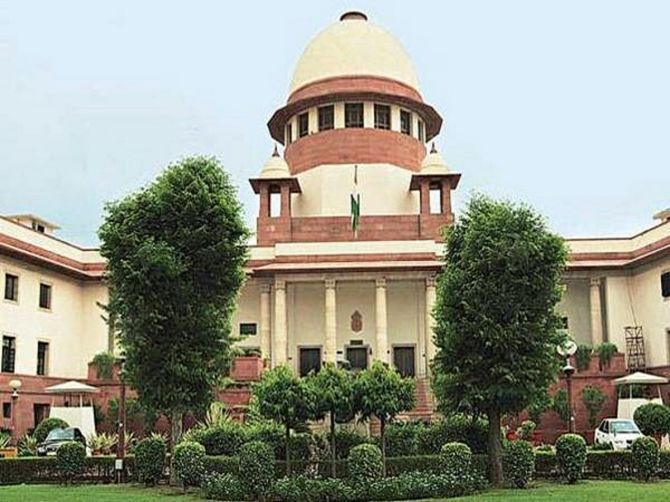In a significant verdict, the Supreme Court on Friday held that children born out of invalid marriages are entitled to claim a share in the property of their parents under the Hindu succession law.

The top court, however, held that the children from such "void or voidable" marriages will not be able to inherit the ancestral properties of the coparceners other than their parents under the Hindu law.
The verdict from a bench of Chief Justice DY Chandrachud, and justices J B Pardiwala and Manoj Misra on a 2011 plea pertaining to the vexatious legal questions as to whether children, born out of annulled or invalid marriages, were entitled to a share in the ancestral property of their parents under Hindu laws.
The judgement has dealt with the question whether the share of such children is limited only to the self-acquired property of their parents under Section 16(3) of the Hindu Marriage Act.
Pronouncing the verdict, the bench explained that under Section 6 of the Hindu Succession Act, the interest of coparceners is defined to be the share of the property that have come to them if the partition had taken place immediately before their death.
Coparceners denote ‘joint heir' of a Hindu undivided family (HUF) who share legal rights for inheriting property, title, and money as defined under the Hindu succession laws.
The top court held the children born out of invalid marriages are entitled to such property which would devolve upon their parents on a notional partition on their death.
The top court said that its verdict would be applicable only to Hindu joint family properties governed by the Hindu Mitakshara law.
Under the Mitakshara law, the son, grandson, and great grandson have a right to the family property through birth.
"For the purpose of ascertaining the interest of a deceased Hindu Mitakshara coparcener, the law mandates the assumption of a state of affairs immediately prior to the death of the coparcener, namely a partition of the coparcenary property between the deceased and other members of the coparcenary.
"Once the share of the deceased in the property that would have been allotted to him if a partition had taken place immediately before his death is ascertained, his heirs, including the children who have been conferred with legitimacy under Section 16 of the Hindu Marriage Act, will be entitled to their share in the property which would have been allotted to the deceased upon the notional partition if it had taken place," the CJI said while pronouncing the verdict.
It also said that the provisions of the Hindu Succession Act needed to be harmonised with section 16(3) of the Hindu Marriage Act which says that any child of a marriage, which is either "null and void or annulled by a court decree" will not be entitled to rights in the properties of any person other than the parents.
"Equal rights have been granted to daughters in the same manner...," it said.
The detailed judgement was awaited.
According to the Hindu law, the man and woman in a void marriage do not have the status of husband and wife. However, they have the status of husband and wife in the voidable marriage.
In a void marriage, no decree of nullity is required to annul the marriage. While, in a voidable marriage decree of nullity is required.
The legal issues were referred to a larger bench by a two-judge bench of the apex court on March 31, 2011.
"The question which crops up in the facts of this case is whether illegitimate children are entitled to a share in the coparcenary (ancestral) property or whether their share is limited only to the self acquired property of their parents under Section 16(3) of the Hindu Marriage Act," the bench had said while referring the case to a larger bench.
The court had said the provision makes it very clear that a child of a "void or voidable marriage" can only claim rights to the property of his parents, and no one else.
The bench had disagreed with the earlier findings of the top court that such children will have no right in ancestral properties of their parents.
"With changing social norms of legitimacy in every society, including ours, what was illegitimate in the past may be legitimate today. The concept of legitimacy stems from social consensus, in the shaping of which various social groups play a vital role... in a changing society law cannot afford to remain static...," it had said.











 © 2025
© 2025